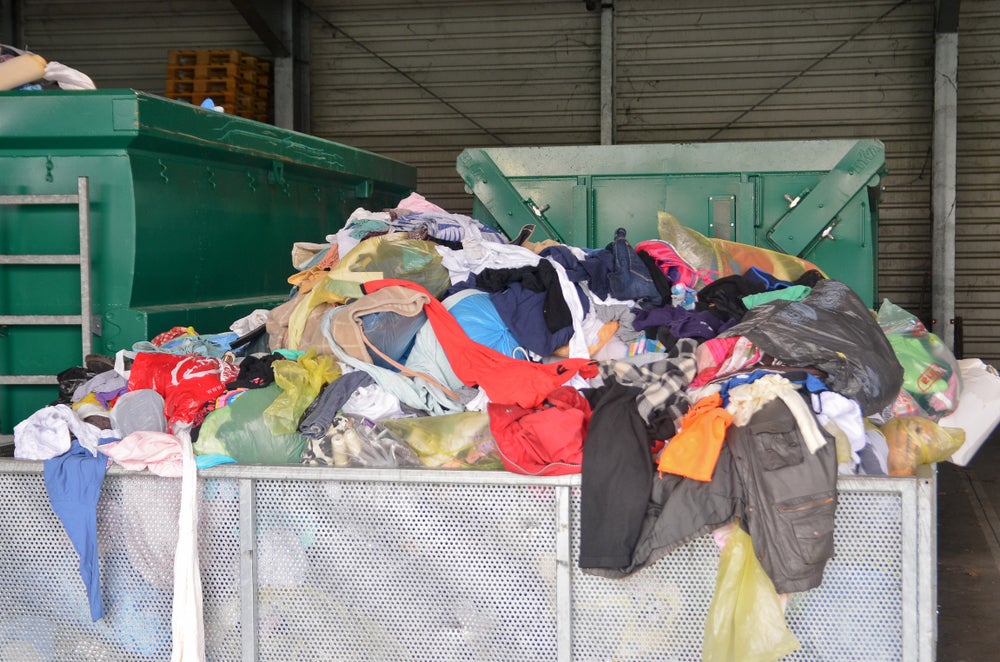On Wednesday (13 March), MEPs solidified their stance on the proposed revision of the Waste Framework with 514 votes in favour, 20 against and 91 abstentions during the first reading.
MEPs reached a common consensus to extend producer responsibility (EPR) schemes, requiring producers selling textiles in the EU to cover the costs of collecting, sorting, and recycling them separately.
Member states would be expected to establish these schemes within 18 months of the directive coming into force, as opposed to the 30 months initially proposed by the Commission.
Additionally, the new rules would cover a wide array of products, including but not limited to clothing and accessories, blankets, bed linen, curtains, hats, footwear, mattresses and carpets.
This scope also extends to products containing textile-related materials such as leather, composition leather, rubber or plastic.
Rapporteur Anna Zalewska said: "Parliament has come up with targeted solutions to reduce food waste, such as promoting “ugly” fruits and veggies, keeping an eye on unfair market practices, clarifying date labelling and donating unsold-but-consumable food. For textiles, we also want to include non-household products, carpets and mattresses, as well as sales via online platforms."
Tight deadlines and excessive red tape
The Federation of the European Sporting Goods Industry (FESI) believes the revised Waste Framework Directive will pave the way for the establishment of a single European-wide register for textile and footwear producers to manage their waste.
FESI explained that the creation of a unique European register for producers of textile products and shoes, which will replace the obligation of following registration requirements in separate national Member State databases.
It pointed out that the establishment of this single EU-wide register will serve to increase transparency and reduce administrative burdens for economic operators and Member State authorities.
However, FESI expressed concern regarding the "extremely short timelines" suggested by MEPs to establish Extended Producer Responsibility schemes, deeming the period insufficient for the industry to adapt without incurring excessive costs and red tape.
Jérôme Pero, FESI Secretary General, said: "Improving textile waste management is crucial to ensure the implementation of a well-functioning circular economy. We welcome the European Parliament’s work on establishing an EU-wide register for textile producers, which will help enhance transparency and alleviate undue administrative burdens for businesses. However, for harmonisation to be effective, it must remain realistic and give economic operators sufficient time to comply with the new regulatory requirements."
FESI advocates for a realistic timeline, urging the Council to align with the Commission’s initial proposal of 30 months.
Moreover, in the interest of legislative coherence across the EU regulatory landscape, FESI believes that the eco-modulation of fees should be based solely on the parameters outlined in the Regulation on Ecodesign for Sustainable Products (ESPR).
FESI said: "Indeed, the reference to microplastic release does not seem justified in the final phase of the product lifecycle particularly in the light of challenges in lack of data and test methods, acknowledged by the European Commission at the time of publication of the strategy on the unintentional release of microplastics caused by plastic pellets."
FESI further recommended emphasising the harmonisation of reporting obligations for companies, including timing, frequency, and operationalisation. "This will not only reduce costs associated with the process but also streamline it while encouraging business participation," concluded the organisation.
MEPs shared that the current file will be followed up by the new Parliament after the 6-9 June European elections.
The new textiles strategy was originally proposed by the EU Commission in 2022, which aims to make clothing longer-lasting, easier to repair and its journey to point of sale traceable.















